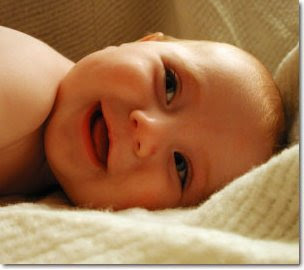Do not Wake your Little Sleep
Sleep is not merely rest, but it is important for growth and development and intelligence. Then, how to sleep right?
What is the function of sleep for children?
For physical growth (energy storage, repair the cells and release growth hormone) and psychological development (emotional, cognitive, consolidation of experience and intelligence).
Are there any types of sleep?
There are non-REM sleep and REM sleep.
Non-REM sleep (Rapid Eye Movement non) is
- Sleeping calmly,
- Eyeball to move slowly,
- Breath and heart rate regularly,
- Hands and feet are not moving,
- Slightly decreased body temperature,
- The muscles somewhat weak,
- Blood pressure slightly decreased, and
- Pulse rate will slow down.
While REM sleep (Rapid Eye Movement) is
- Sleep is active,
- Eyeball to move fast,
- Irregular breathing,
- Hands and feet were moving,
- Sometimes delirium
- Crying, or
- Dreaming.
Sleep cycle occurs every time sleeping alternately and repeatedly.
What is the effect on the intelligence of children sleep cycle?
Active sleep (REM) is very influential to the intelligence of children. When active sleep (REM) increased blood flow to the brain, the growth of brain cells faster, stimulates brain functions, restoration and consolidation of emotional and cognitive experience that day. Age, it will be less and less active sleep. After three years of age, only 20% active sleep.
Is a good night's sleep, children can grow and develop optimally?
Children need a good night's sleep and active sleep, adequate and balanced nutrition for the body (especially the brain), as well as environmental stimulation, intelligence and creativity as well as immunization and hygiene for the prevention and treatment of disease.
How long does it take a child to sleep?
Total sleep duration of each age group vary, depending on physical factors, psychological and environmental.
Infant sleep duration,
Age 0-1 months, 7-8 hour nap, sleep 8-9 hours a night.
Age 1-3 months, 5-7 hour nap, sleep 9-10 hours a night.
Ages 3-12 months, 3-5 hour nap, sleep 10-11 hours a night.
Age 1-3 years, 1-3 hour nap, sleep 10-11 hours a night.
Starting age of 4 years, children get enough sleep the night 8-11 hours.
Lunch time should be used to play, interact with others to develop the ability to rough and smooth motion, communication, thinking, intelligence and emotional maturity.
Are there any side effects of deficiency or excess of sleep?
Children who lack the time and often disrupted sleep cycles, physical growth of smaller, more labile emotions, cognitive abilities and experience combine lower. However, excess of sleep (especially sleep calmly) resulted in excessive energy storage. Children were less active play, making it less emotional and cognitive interaction causes less than optimal.




